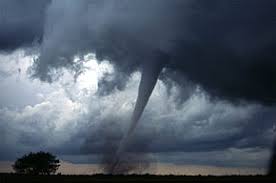A sage lives in a forest. He has raised a number of pets – all monkeys. One morning a seeker comes with a question like the one you have just now put to me. He says to the Taoist sage that his statements are often contradictory and they only confuse him. The sage grins and says to the visitor, “Just wait and see what happens.” And he calls his monkeys to his side and tells them, “Listen, I am going to make some changes in your menu.” The monkeys look surprised. For so long they were being given four breads in the morning and three in the evening. The sage Says, “From now on you will receive three breads in the morning and four in the evening.”
Hearing about this change the monkeys became wild with rage. They fret and fume and even threaten to revolt against the proposed change. They insist on the old system being continued. But the sage is equally insistent on his proposal. So his pets prepare themselves to attack and harm their Master. The sage grins again and says to them, “Wait another minute. You will continue to have four breads in the morning as ever.” It calms down the monkeys instantly.
The Taoist sage now turns his face to his visitor and says, “Do you get it? The monkeys were to receive seven breads in all, even after the slight change I had proposed. But they refused to accept three breads in place of four in the morning. Does it make a difference if they receive four in the morning or in the evening? Yet they are happy to know that no change is being made.”
Fear of Change
We all face Fear of Change.
The fear of change is one of the most common fears that people face.
Change is difficult for everyone; there are few people that don’t feel somewhat anxious at the prospect of a major upheaval in their lives. The problem comes when fear of change keeps people paralyzed in situations that are not healthy or fulfilling, or when their fear of change isn’t confined to significant changes, but encompasses relatively minor, daily changes in routine.
Roots of Change-related Fear:
Fear of change is often related to a negative worldview, and just as often related to a tendency toward anxiety (and of course, these two variables are often related to one another, as well).
Anxious parents often pass down the worldview that life is filled with danger and risk, and the best course of action is to stick to what is safe and known. Often, parents who experienced trauma, severe poverty, or abusive upbringings can implicitly teach their own children that life is dangerous and unpredictable.
This is how young adults who objectively have lots of exciting opportunities in front of them can remain paralyzed by fear of changing anything, because the change might lead to something unsafe.
How to Live with a Fear of Change:
If you struggle with fear of change, don’t allow it to trap you into a life that you don’t want. While change may seem terrifying, the real tragedy is living a life that doesn’t bring you any joy.
Challenge yourself to try and overcome your fear of change, and watch how much more fulfilling, interesting, and meaningful your life can become!
Learning from the story A Sage And Monkeys: Drop The Fear Of Change
Experience Learning
Science Says This Is Why You Fear Change.
We also fear the new because of the uncertainty it brings. As popular podcaster Tim Ferriss says, people would rather be unhappy than uncertain.
Neuroscience research teaches us that uncertainty registers in our brain much like an error does. It needs to be corrected before we can feel comfortable again, so we’d rather not have that hanging out there if we can avoid it.
We also fear change because we fear that we might lose what’s associated with that change. Our aversion to loss can even cause logic to fly out the window. This is why research shows that gamblers at a horse track who are having a losing day are most likely to bet the long shots, at terrible odds, on the last race of the day. They’re faced with the realization of loss and are willing to bet on a horse with 20:1 odds, a bet they’d never walk in thinking they’d make–all because of our violent aversion to loss.
4C’s of Change:
1. Career
This C is intended as some tough love; it’s not help per se but is an extra motivator. Research indicates that a fear of change is one of the single most career limiting moves you can make.
2. Competence
You must believe you have the competence for change. Research shows among all those who suffer from a fear of change that about half fear they won’t be able to handle or thrive on the other side of a given change while the other half fear the process of or being prepared for change itself (and how painful it will be).
The truth is you must believe you have the competence to handle both; you’ve done it before after all. And you must fundamentally believe that change will only make you better. This requires letting go of how good things used to be and to stop joining anti-change groups that spend their time complaining about the change.
3. Case
It’s critical that you understand the case for change if you want to better deal with it. If you’re not clear on why the change is being instituted, get clear. This goes to that tendency for us to want to treat change/uncertainty like an error. If we understand why the change is happening, we’re less likely to view it as an error and will have a much better time with it.
4. Core
Finally, keep in mind the core of you, what will not change, with the pending change. Change makes us feel untethered and like we’re flailing in the wind. Find your anchor and recall what the pending change won’t change about your world that’s important to you (like your connection with your family, your core values, or your commitment to serve others).
While change isn’t easy it’s inevitable.











